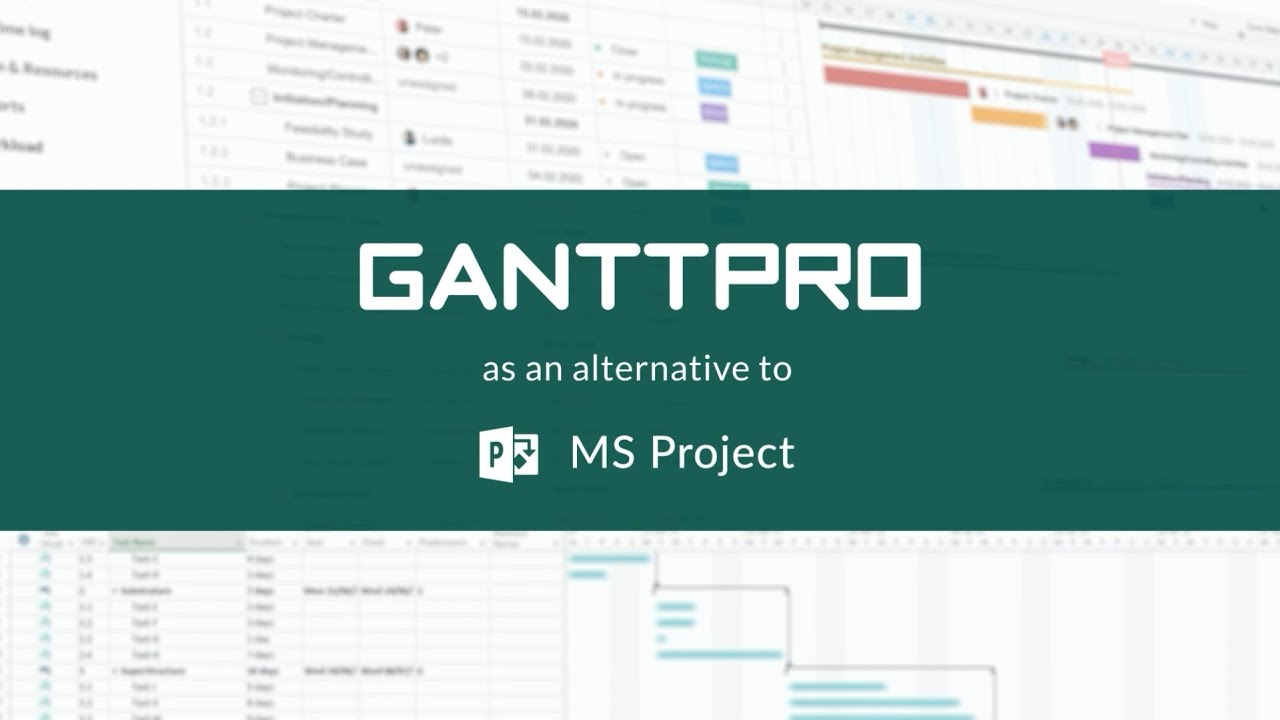20 Time Management Tips for Project Managers
As a project manager, you are responsible for the successful completion of a project within budget, on time, and to the satisfaction of all stakeholders. To achieve this, effective time management is essential. Here are 20 tips to help you manage your time effectively and achieve success in your projects.
1. Prioritize Tasks
One of the most important things you can do as a project manager is to prioritize tasks. This means understanding which tasks are most important and focusing on them first.
1.1. Make a To-Do List
A to-do list is a simple yet effective tool for prioritizing tasks. Start by making a list of all the tasks you need to complete. Then, prioritize them based on importance and urgency.
1.2. Use a Gantt Chart
A Gantt chart is a visual representation of a project timeline that helps you see which tasks need to be completed first. You can use a Gantt chart to prioritize tasks, allocate resources, and track progress. There are many Gantt chart software options available, such as GanttPRO, Microsoft Project, Wrike, ClickUp, Monday.com, Smartsheet, and others.
2. Delegate Tasks
As a project manager, you cannot do everything yourself. Delegating tasks to team members can help you focus on the most important tasks and also give your team members the opportunity to learn new skills.
2.1. Choose the Right Person
When delegating tasks, it is important to choose the right person for the job. Consider the skills and experience of your team members, as well as their workload, when deciding who to delegate tasks to.
2.2. Provide Clear Instructions
Providing clear instructions is key to successful delegation. Make sure your team members understand what is expected of them and how to complete the task.
3. Use Technology
Technology can help you manage your time more effectively. There are many tools available to help you stay organized, communicate with your team, and track progress.
3.1. Email Management
Email can be a major time-waster if not managed properly. Consider using email management tools to help you stay on top of your inbox and prioritize emails.
3.2. Project Management Software
Project management software can help you manage your projects, communicate with your team, and track progress. Popular options include Asana, Trello, and Basecamp.
4. Set Goals and Deadlines
Setting goals and deadlines is an important part of effective time management. It helps you focus on what needs to be done and ensures that tasks are completed on time.
4.1. Break Down Large Tasks
Large tasks can seem overwhelming, but breaking them down into smaller, manageable tasks can make them more achievable.
4.2. Use a Timer
A timer can help you stay focused and ensure that you use your time effectively. Set a timer for a specific amount of time and work on one task until the timer goes off. Then move on to the next task.
5. Take Breaks
Taking breaks is an important part of effective time management. It helps to refresh your mind and increase productivity.
5.1. Step Away from Your Desk
Stepping away from your desk for a few minutes can help you clear your mind and recharge. Consider taking a short walk or doing some stretching exercises.
5.2. Practice Mindfulness
Practicing mindfulness can help you reduce stress and increase focus. Consider incorporating mindfulness techniques, such as meditation or deep breathing, into your daily routine.
6. Minimize Distractions
Distractions can have a big impact on your productivity and effectiveness. Minimizing distractions is an important part of effective time management.
6.1. Turn Off Notifications
Turning off notifications on your computer and phone can help you reduce distractions and stay focused.
6.2. Work in a Quiet Environment
Working in a quiet environment can help you stay focused and minimize distractions. If you are working in an open office, consider using headphones or finding a quiet workspace.
7. Stay Organized
Staying organized is an important partof effective time management. It helps you keep track of tasks, deadlines, and progress, and ensures that you are using your time effectively.
7.1. Use a File Management System
Using a file management system can help you keep track of documents and files related to your project. This can include digital and physical files.
7.2. Keep a Calendar
Keeping a calendar is an important part of staying organized. This can include a digital calendar, such as Google Calendar or Outlook, or a physical planner.
8. Manage Meetings Effectively
Meetings can be a major time-waster if not managed effectively. Here are some tips for managing meetings effectively.
8.1. Keep Meetings Short and to the Point
Keep meetings short and to the point. This will help you stay focused and use your time effectively.
8.2. Have a Clear Agenda
Having a clear agenda for each meeting will help you stay on track and ensure that all relevant topics are discussed.
9. Focus on One Thing at a Time
Multitasking can be tempting, but it is often more effective to focus on one thing at a time. This will help you stay focused and complete tasks more quickly.
9.1. Turn Off Distractions
Turning off distractions, such as email notifications, can help you stay focused on the task at hand.
9.2. Eliminate Unnecessary Tasks
Eliminating unnecessary tasks can help you focus on the most important tasks and use your time more effectively.
10. Manage Your Energy
Managing your energy is an important part of effective time management. This includes getting enough sleep, eating well, and exercising regularly.
10.1. Get Enough Sleep
Getting enough sleep is essential for maintaining your energy levels and being productive.
10.2. Eat Well
Eating a healthy diet can help you maintain your energy levels and be more productive.
11. Learn to Say No
Learning to say no is an important part of effective time management. There will always be more tasks than you have time for, and it is important to prioritize and focus on the most important tasks.
11.1. Prioritize Tasks
Prioritizing tasks helps you focus on the most important tasks and ensure that you are using your time effectively.
11.2. Focus on What Matters Most
Focusing on what matters most helps you prioritize tasks and ensure that you are using your time effectively.
12. Manage Stress
Stress can have a big impact on your productivity and effectiveness. Managing stress is an important part of effective time management.
12.1. Take Breaks
Taking breaks is an important part of managing stress. This can include taking a walk, doing some stretching exercises, or practicing mindfulness techniques.
12.2. Get Support
Getting support from friends, family, or a professional can help you manage stress and maintain your mental health.
13. Set Realistic Expectations
Setting realistic expectations is an important part of effective time management. This includes setting realistic deadlines and goals, and being realistic about what you can achieve in a given amount of time.
13.1. Be Honest with Yourself
Being honest with yourself about what you can achieve in a given amount of time is an important part of setting realistic expectations.
13.2. Communicate with Your Team
Communicating with your team about realistic expectations and deadlines can help you stay on track and achieve success in your projects.
14. Stay Focused on the Big Picture
Staying focused on the big picture is an important part of effective time management. This helps you see the bigger picture and understand how your tasks fit into the overall project.
14.1. Keep Your Goals in Mind
Keeping your goals in mind can help you stay focused on the big picture and use your time effectively.
14.2. Stay Positive
Staying positive can help you stay focused on the big picture and maintain your motivation.
##15. Manage Your Time proactively
Proactive time management means anticipating and planning for potential challenges and taking steps to avoid them.
15.1. Anticipate Challenges
Anticipating challenges and planning for them can help you manage your time more effectively and avoid potential roadblocks.
15.2. Stay Ahead of Schedule
Staying ahead of schedule helps you stay ahead of potential challenges and ensure that you have time to handle unexpected events.
16. Focus on Results, Not Activity
Focusing on results, rather than activity, is an important part of effective time management. This means focusing on what you need to achieve, rather than simply being busy.
16.1. Set Clear Goals
Setting clear goals helps you focus on what you need to achieve and use your time effectively.
16.2. Measure Progress
Measuring progress helps you stay focused on what you need to achieve and ensure that you are using your time effectively.
17. Take Care of Your Health
Taking care of your health is an important part of effective time management. This includes getting enough sleep, eating well, and exercising regularly.
17.1. Get Enough Sleep
Getting enough sleep is essential for maintaining good health and being productive.
17.2. Eat Well
Eating a healthy diet can help you maintain good health and be more productive.
18. Use Downtime Effectively
Downtime is an important part of effective time management. This can include taking breaks, practicing mindfulness techniques, or learning new skills.
18.1. Take Breaks
Taking breaks is an important part of using downtime effectively. This can include taking a walk, doing some stretching exercises, or practicing mindfulness techniques.
18.2. Learn New Skills
Learning new skills during downtime can help you stay up-to-date and be more productive.
19. Celebrate Success
Celebrating success is an important part of effective time management. This helps you stay motivated, maintain your focus, and acknowledge the hard work you have put into your projects.
19.1. Acknowledge Your Accomplishments
Acknowledge your accomplishments and take time to celebrate your successes. This helps you stay motivated and maintain your focus.
19.2. Reflect on Your Progress
Reflecting on your progress helps you stay motivated and maintain your focus, as well as identify areas where you can improve.
20. Keep Learning
Keep learning and growing as a project manager is an important part of effective time management. This includes staying up-to-date with industry trends and best practices, as well as continuous improvement in your skills and knowledge.
20.1. Stay Up-to-Date
Staying up-to-date with industry trends and best practices helps you be a better project manager and use your time effectively.
20.2. Continuously Improve
Continuously improving your skills and knowledge helps you be a better project manager and use your time effectively.
In conclusion, effective time management is essential for project managers. By following these 20 tips, you can manage your time more effectively, achieve success in your projects, and maintain your focus, motivation, and overall well-being.

